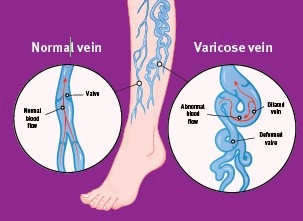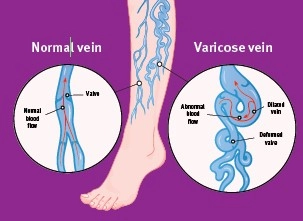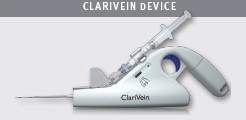Varicose veins can signal serious health issues

Many people think the only reason to treat varicose veins is to look better. While varicose veins are usually harmless, they can be warning signs of underlying health issues.
Veins leading to your legs have one-way valves. This prevents blood from flowing backward toward your heart. When those valves don’t work properly, blood can collect in the vein and can cause:

- Varicose or spider veins
- Leg swelling
- Skin discoloration and/or thickening
- Chronic pain
- Ulcers over the leg/ankle
Consider seeing a vascular surgeon if you have any of the above issues. Salem Health Vein Clinic, a service of Salem Health Surgical Specialty Clinics, offers patients a wide array of treatment options.
ClariVein: A nimble and effective option
ClariVein is a minimally invasive procedure that closes varicose veins without surgery. It’s simpler and shorter than traditional treatments.

- Surgeons insert a thin, specialized catheter into the target vein.
- There’s no need for anesthesia or multiple needle-stick injections.
- Other benefits include less pain and faster recovery than surgical ligation and stripping, and a quicker return to work or normal activities.
Traditional treatment options
- Compression therapy: Wearing compression socks daily helps blood move from your legs back up to your heart.
- Vein ablation: A minimally invasive surgery that seals the vein and prevents blood from flowing backwards.
- Surgical ligation and stripping: This procedure is done under anesthesia and removes varicose veins from your leg or thigh.
If you are interested in getting treatment, your primary care provider might recommend you try several other options before referring you to a specialist:
- Elevating your leg.
- Wearing compression socks/ACE wraps.
- Undergoing an arterial physiological study — also known as ABI.
- Undergoing a venous insufficiency study and venous duplex ultrasound.
Your provider might prescribe oral antibiotics if they suspect that you have an infection. Lastly, they may order urgent treatment if the affected area is below a certain temperature, discolored or has open ulcers.
Ask your doctor for more information about which treatment option could be right for you or your loved one.